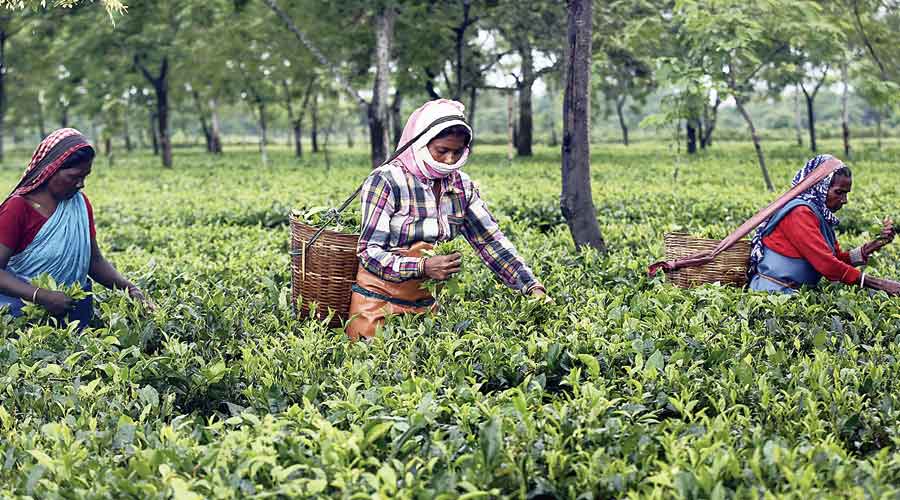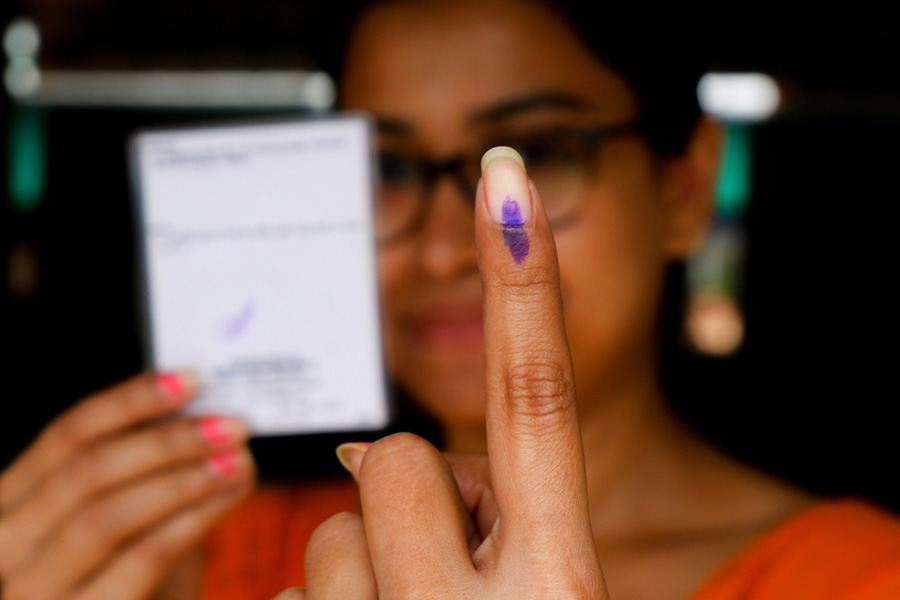A proposal by a national body of tea traders to import the produce for export has drawn flak from big and small growers in north Bengal as they think a portion of the commodity will be sold out in India where the tea industry has been plagued by the oversupply for the past five years.
Two national forums of tea growers have fired off letters to Union commerce minister Piyush Goyal after they came to know that some tea traders were planning the import because of shortfall in the production in India, particularly in Bengal and Assam, in the past few months because of the lockdown and inclement weather.
They have also quoted data of the Tea Board of India and pointed out that tea meant for re-export could leak into the domestic market and would eventually bring down the prices which have surged these days because of less supply.
The Tea Board mentioned in one of its notifications on Tuesday that 60.35 million kilos of teas had been imported into India in the past three years and of them, only 23.43 million kilos had been re-exported. The rest 36.92 million kilos have been sold in the country.
Viren Shah, chairman of the Federation of All India Tea Traders Association, however, has explained the logic for importing tea.
“There has been a loss in tea production this year and prices of Indian tea have increased in the past few months. Last year, we could export around 250 million kilos of tea and to ensure that we retain the export markets, it is necessary that tea is offered at competitive prices in overseas markets. We can import tea by complying with all regulations and can use the same to develop our export front,” explained Shah.
In India, importing tea from other countries draws a duty at the rate of 100 per cent if it is for domestic sale. But if tea is imported for export, the duty is nil.
Tea imported from Nepal for domestic consumption attracts no duty.
Vivek Goenka, chairman of the Consultative Committee of Plantation Associations (CCPA) — the apex body of tea planters in the country — has sent a letter to Goyal, mentioning that there had been accumulated surplus of 186 million kilos of tea in the country from 2013 till 2019.
“The CCPA chairman has pointed out that if tea is imported, it can destabilise the industry and the prices. After many years, tea prices have shown a steady increase and if such prices sustain, it can largely help the industry,” said a representative of the Indian Tea Association, a constituent of CCPA.
The Confederation of Indian Small Tea Growers (Cista) is the other organisation which wrote to Goyal.
In India, around 1.2 million workers are being employed in the tea sector. The country is one of the largest producers of tea in the world and consumes around 23 per cent of the global production, with an export share of 13 per cent.
Added to the organised sector, there are over three lakh small tea growers who are also dependent on the industry.
“There is a wrong contention that rise in tea prices can affect domestic consumers. In fact, it has been found that a rise of Rs 100 per kg means an increase of 20 paisa per a cup of tea. Also, this rise in prices can help in mitigating the cost of production and import of tea can affect the industry’s prospects,” said a tea planter in Siliguri.











